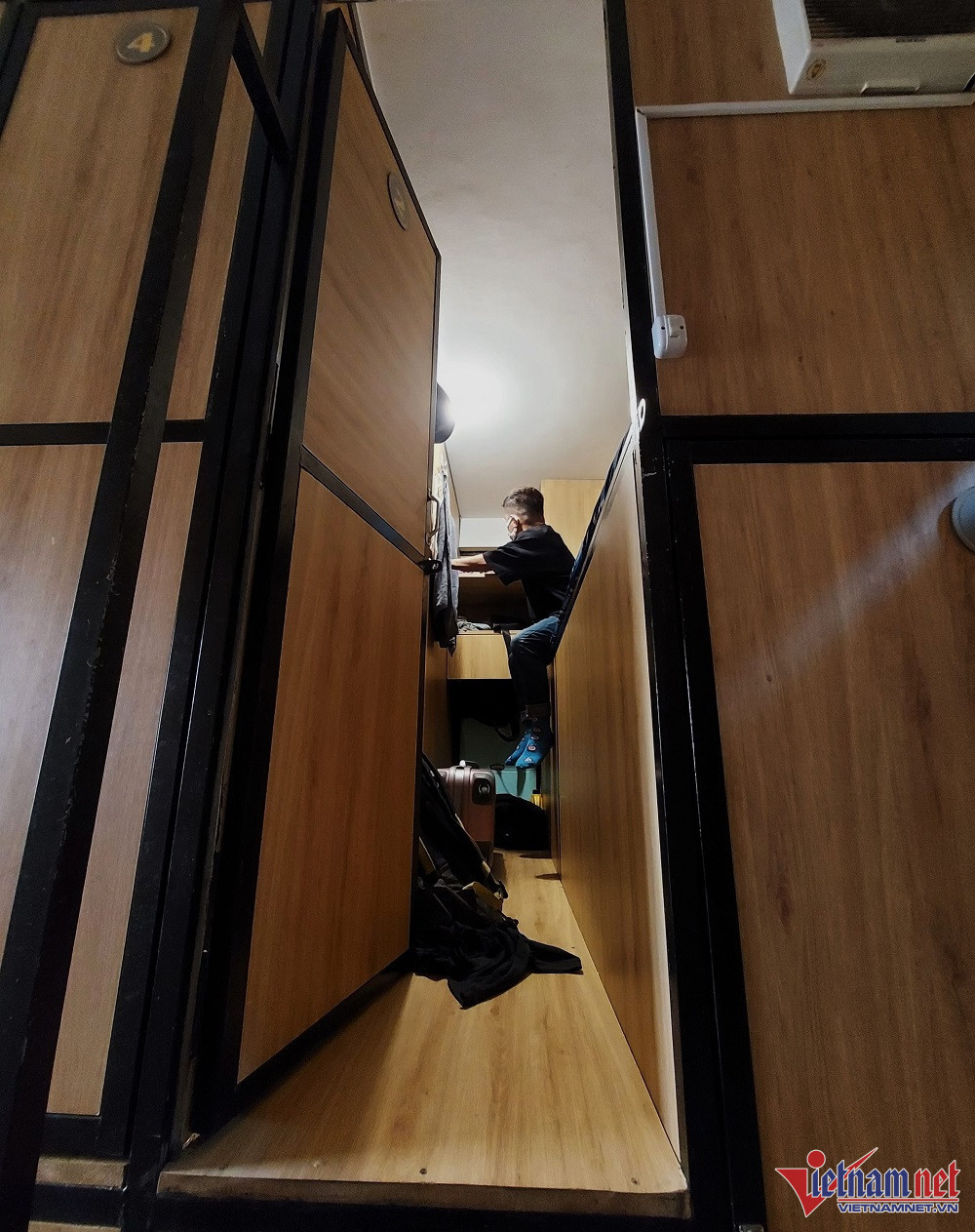
When Thanh Cuong, 33, in HCM City left the boarding room with his suitcase, Trung Hieu, 34, from Hanoi, moved into the room to replace him. The room, just 1.2 meters in width and 2 meters in length with a total area of 2.5 sq m, informally called a "sleep box", is now his living space.
The area has just enough for one person to sleep.
This type of accommodation is located in the country's business hub of HCM City. They are considered a kind of dormitory with stacked sleeping compartments that optimizes areas and increases the number of rooms. The compartments have doors to ensure tenants’ private space.
Living in one for two years, Cuong said he paid rent of VND2 million a month, which also covered expenses on electricity, water, toilet and internet. The landlord had an air conditioning system for all the rooms, and provided shared refrigerators and washing machines on the rooftop. Cleaners collected waste three times a week.
“It is very difficult to find a rented room in district 1 with full utilities and for such a low fee,” Cuong explained. “A well-equipped room in the area would cost you VND6-8 million a month. So a sleep box is a reasonable choice for those who want to minimize living costs."
Hieu is a cook and plans to take two jobs and work two shifts a day. His working time at a restaurant and a bar takes up the whole day, so he just wants a place to sleep, not live.
He can easily commute between where he lives and his place of work. The travel distance is not too far, while he can avoid traffic jams and cut travel expenses. Hieu plans to buy a motorbike. He estimates that he can save VND3-5 million a month thanks to the 2.5 sq m sleep box.
Low cost
Nguyen Gia Tri and Xo Viet Nghe Tinh streets in Binh Thanh district, Tan Phong ward in district 7, Le Hong Phong street in district 10 and Cong Quynh street in district 1 are areas with many sleep boxes.
According to a sleep box owner, the boxes copy the look of a business-class compartment in airplanes or private rooms in trains. They have become popular in Vietnam, especially among young people.
He is now the owner of eight sleep box systems. Each of his boarding houses has been converted into 40-50 sleep boxes. With an average rent of VND2 million a month, he can earn VND700 million a month.
Cao Phi Yen, who runs a motel, as foreign travelers have not returned to Vietnam after the pandemic, she turned hotel rooms into bunk beds for lease, with daily rent of $5-6, and VND2.2 million a month.
Sleep box model fits students and singles who work all day and just need a place to rest in the evening when they finish working hours. However, those who once stayed in sleep boxes said that it is inconvenient at all as they have to share the kitchen, the refrigerator and the toilet.
Tran Chung